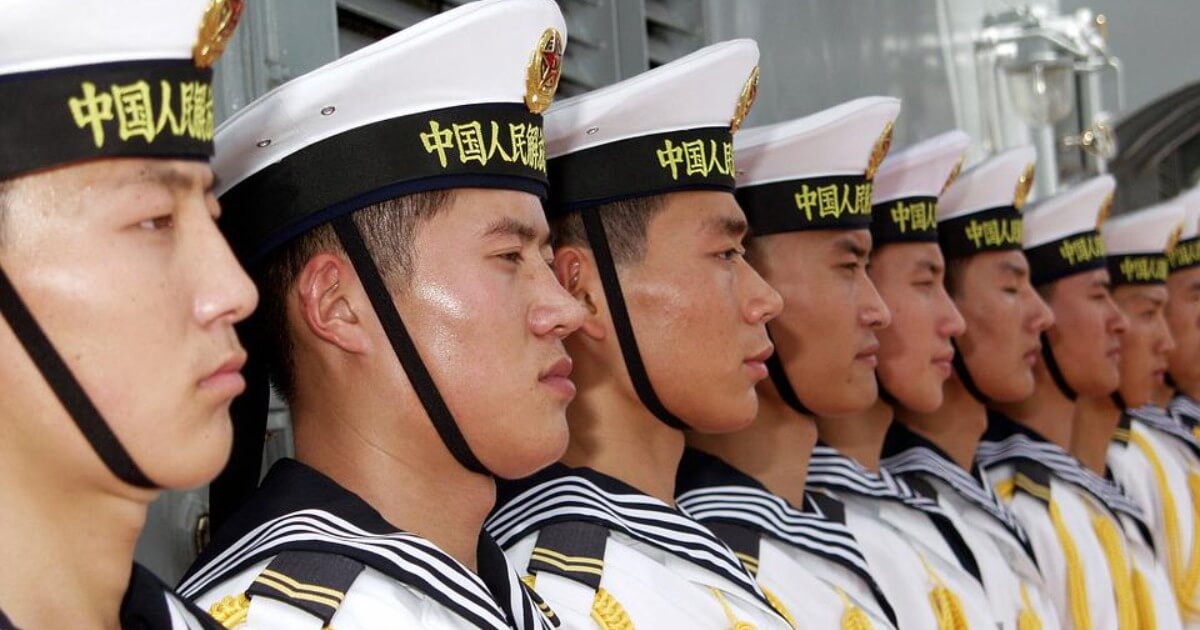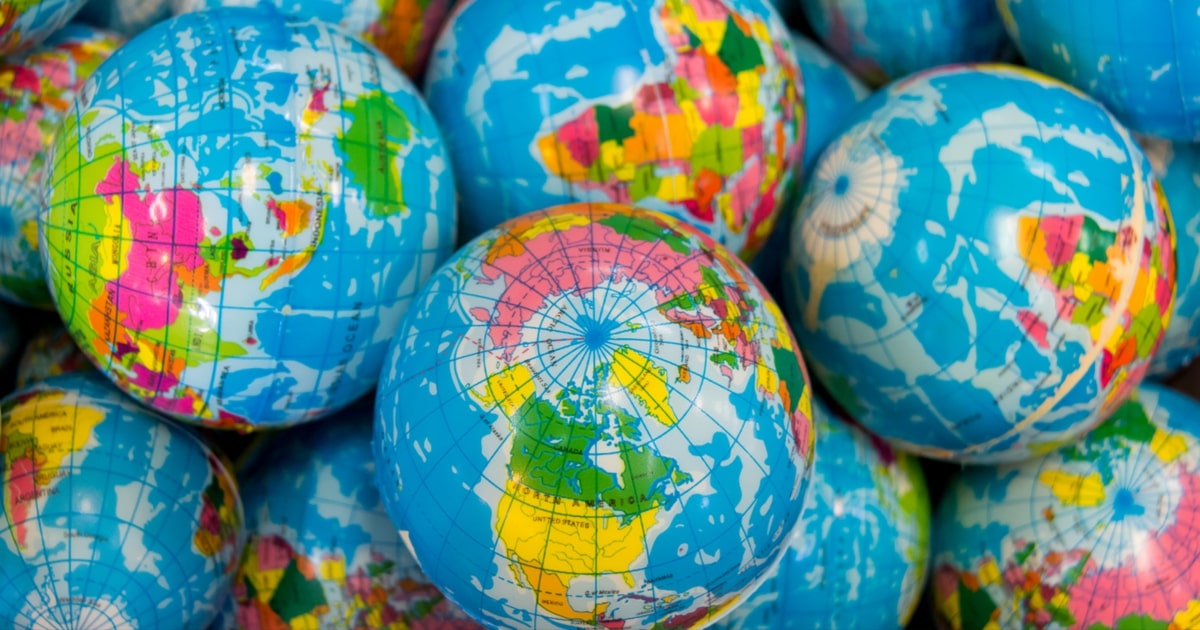2027: The Year World War III Begins?
Destination Taiwan? Why Emperor Xi could be tempted to celebrate the 100th anniversary of the founding of the People’s Liberation Army in 2027 with an invasion.
December 4, 2023

A decade ago, in one of those global futurology scenarios that foreign correspondents love to create, Martin Walker, who had reported with distinction from Moscow, Washington and Brussels for The Guardian, made the point that China would get old before it got rich.
The dictatorial regime’s rejection of a liberal market economy based on free exchange of information meant one thing: Impressive as China’s growth rate was, it would never be able to generate enough wealth to create a balanced economy – such as Asian neighbors like Japan, South Korea, Malaysia and Taiwan had achieved. This remains the case to this day.
No market economy and plenty of oldsters without pensions
People often forget that China also has the world’s fastest growing elderly population. In 2019, there were 219 million people aged over 60. By 2040, that figure will grow to 402 million old Chinese – only 40 million fewer than the entire population of today’s European Union.
28% of the Chinese population in 2040 will be of pension age – except very few of them will have pensions, as the Chinese state has made no provision for them. Chinese communists also did not oblige firms and public sector institutions to create funded pensions, which ensure there is an income after working life for citizens living in democracies.
However, the question the Chinese are asking is whether their increasingly autocratic “paramount” leader, Xi Jinping, the general secretary of the Chinese Communist Party and Chairman of the State Military Commission, will get old before he gets Taiwan.
2027: The fateful year
Looking ahead, we should all be aware that 2027 is a key anniversary for Xi. He will complete an unprecedented third term as supreme leader. He will be 73 – much younger than Joe Biden or Donald Trump.
The importance of the year is that it is the 100th anniversary of the founding of the People’s Liberation Army. Mao Zedong founded the Chinese Communist Party in 1921, followed six years later by the PLA.
What better way to celebrate the PLA’s centennial year in 2027 than using it to re-unite what Chinese leaders see as an integral part of their country?
Can Taiwan make up for ever lowering standards of living?
Xi Jinping has been in charge of China for a decade. In addition to doing nothing to help the rapidly rising older population, Xi has also presided over a big jump in unemployment among young people. By May 2023, urban youth unemployment had reached 21%.
The Chinese middle classes who rose in force after the Deng Xiaoping reforms that fused communism and capitalism are no longer sure their prosperity will keep rising.
Any savings are used to buy bricks and mortar. For many years, Chinese municipal authorities have sold off land to generate income for running cities and towns.
A looming downward spiral
However, recent crashes of construction firms and banks that finance housing loans have shaken confidence – both within and outside China. Gone is the assumption that the bubbles and booms would continue indefinitely, while everybody would get a bit richer.
China has no transparency and no true accountability. It lacks the basic tenets of open market capitalism, where non-state media and private shareholders have a strong interest – and the ability – to get rid of CEOs and executives who underperform.
In China, doing the equivalent would mean taking on a Communist cadre with powerful political connections. No wonder that poor management of firms and of provinces and cities often continues unchecked.
Brains are draining to the West
The wealthy millionaire class of China is shifting its money and its sons and daughters abroad. Any glance at a university campus in the United States, Australia, Canada, Britain and European universities that teach in English amply demonstrates that act of “country flight.”
Beijing is bringing in controls on illicit currency outflows. Alas, that move serves to heighten the gap between the new wealth-creating elites and the unreformable dead hand of Communist Party control.
No surprise that Xi faces a restless population. Between 1980 and 2020, China’s communist rulers offered a deal: Everyone gets richer in exchange for not challenging the monopoly of power by a highly self-referential, unreformable dictatorship. That deal is no longer working.
When a supreme leader is sitting on a large military, but is no longer able to offer his people a decent life or to permit the freedoms and rights associated with democracy, the temptation is strong to change the story with an act of patriotic nationalism – such as to regain “lost” territory.
Whispers of recovering greatness in 2027
There are increasing references to 2027, when Xi’s third term as leader of China comes to an end, as the moment when the fatherland will recover its lost province and island of Taiwan.
The CIA has issued such warnings, as has the Taiwanese government. These may be dismissed as alarmist attempts to get the United States to provide ever more advanced weaponry to Taiwan.
The weakened will of the West
However, the failure of the West to provide Ukraine with adequate advanced weapons to drive back Putin’s invasion and the growing calls for a Korean peninsula-type truce, show that the will to wage war is absent in the democratic world.
The democratic world no longer follows the adage: “If you want peace, prepare for war.” No European government dealing with unwinding the massive state borrowing needed after the COVID 19 pandemic is spending serious money on defense. The EU still has no common procurement policy for arms, as each European nation wants to keep its cottage arms industry in place.
Britain has seven times as many people in prison as it does combat-ready soldiers. On the continent, the only invasion European right-wing politicians talk about is that of asylum seekers from failed states like Iraq, Libya, Syria and sub-Saharan Africa.
The sleeping giant lies in Korea and Japan
The United States has forward military bases in Korea and Japan, the equivalent of Pearl Harbor in 1941. If Xi is serious about taking over Taiwan by force, he will have to neutralize U.S. forces in East Asia. That would likely result in kickstarting World War III.
How to avoid it? It does not help that the Global South is led by increasingly anti-democratic political elites who need to mask their often poor economic performances. They have no sense of a common destiny with the more northerly Euro-Atlantic community of advanced democracies.
So, stand by for 2027 – a year of living dangerously.
Takeaways
Destination Taiwan: What better way to celebrate the 100th anniversary of the founding of the PLA in 2027 than using it to re-unite what Chinese leaders see as an integral part of their country?
Many autocratic leaders in the Global South feel the need to mask weak economic performances with appeals to rabid nationalism.
When an autocratic leader like Xi is sitting on a large military, but is no longer able to offer his people a decent life or to permit the freedoms and rights associated with democracy, the temptation is strong to change the story with an act of patriotic nationalism – such as to regain “lost” territory.
Xi faces a restless population. Between 1980 and 2020, China’s communist rulers offered a deal: Everyone gets richer in exchange for not challenging the monopoly of power by a highly self-referential, unreformable dictatorship. That deal is no longer working.
The wealthy millionaire class of China is shifting its money and its sons and daughters abroad. Any glance at a university campus in the United States, Australia, Canada, Britain and European universities that teach in English amply demonstrates that act of “country flight.”

